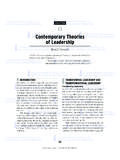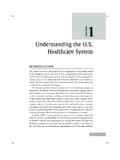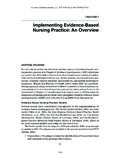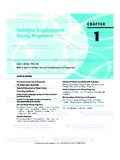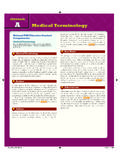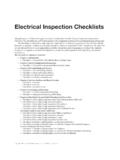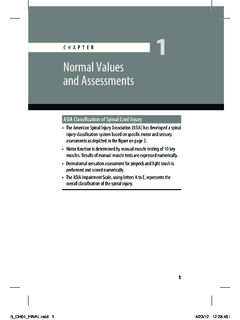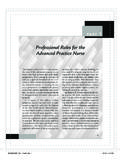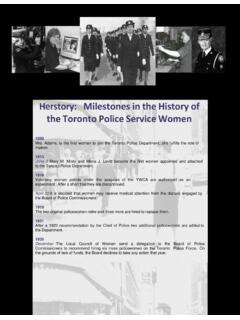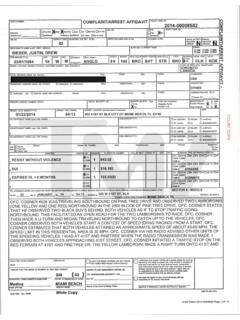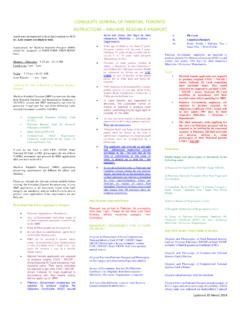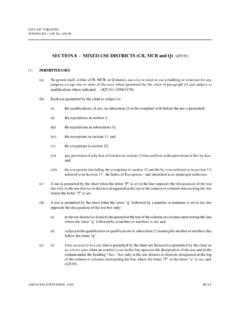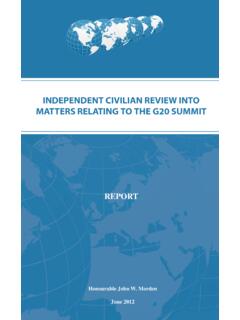Transcription of Policing Issues: Challenges & Controversies
1 Policing Issues: Challenges & ControversiesbyJeffrey Ian Ross, ProfessorSchool of Criminal Justice, College of Public Affairs Fellow, Center for Comparative and International Law2003 Distinguished Chair in ResearchUniversity of 12/8/10 1:27 PM Page icopyright 12/8/10 1:27 PM Page iiDedicated to Roger Riendeau, mentor and 12/8/10 1:27 PM Page 12/8/10 1:27 PM Page ivPrefaceviiAcknowledgmentsxviiAbout the AuthorxixForewordxxiPART ONE: Introduction to Policing11 Introduction to Policing32 The History of Municipal Policing in the United States233 The Mythology of Municipal Policing41 PART TWO: Problems/ Challenges for Citizens and the Community554 Emphasizing Public Relations over Crime Reduction575 Failure to Properly Investigate Crime: Problems with the Detective Function756 Improper Discretion917 Inability to Significantly Reduce Crime: Problems with Patrol and Domestic Violence1058 Poor Police Community Relations1159 Deviancy and Corruption13110 Police Violence/Excessive 12/8/10 1:27 PM Page vPART THREE: Problems/ Challenges for PoliceOfficers and Administrators17711 Failure to Adopt and/or Properly Use New Technology17912 Inability to Properly Manage, Supervise, and Lead Police Organizations19313 Cooperation/Collaboration with Other Police Departments and Criminal Justice Agencies20914 Underfunding22115 Inadequate Wages and Compensation23116 Ineffective/Insufficient Recruitment, Education, and Training24317 Working Conditions26318 The Future of Municipal Policing275 Answer Key For Multiple Choice 12/8/10 1.
2 27 PM Page viReflective StatementThe average person is not likely to be too concerned about Policing , but Iam. The Challenges of Policing and law enforcement has intrigued me sinceadolescence. My interest in this topic led me to write my dissertation on theproblem of police violence in New York City and Toronto (Ross, 1993).Shortly after this research, I went to work for the National Institute of Justice(NIJ, a division of the Department of Justice), where I worked for threeyears as a social science analyst, managing research grants connected topolicing issues. I started in 1995, after Congress passed the Violent CrimeControl and Law Enforcement Act ( the Crime Bill ). This legislationnot only authorized funds for the employment of 100,000 officers to providecommunity Policing services to jurisdictions, but also set aside moneyfor Policing research.
3 As a social science analyst, I contributed to and coordi-nated the writing of requests for proposals, managed and monitored the peerreview process, directed a team that conducted strategic planning aroundNIJ s Policing research, and managed as many as 35 research grants. Almostall of them dealt with issues connected to community Policing and policeviolence (Ross, 2000a). Nevertheless, now that I have been teaching classes on Policing for over15 years, I have become increasingly motivated to identify the most impor-tant problems within this field as well as their solutions. I am under the belief, misguided as it may seem, that this informationwill help us focus our efforts on meaningful reform. I am not alone. A verita-ble army of law enforcement experts who work in university settings, policecolleges, and nonprofit organizations conduct research on Policing .
4 At anygiven time, police consultants, whether alone or as part of a team, are criss-crossing the country and sometimes traveling the world to provide all sorts oftechnical assistance and evaluations of police policies and practices. I m alsoaware of the politically charged atmosphere in which police reform exists,which can significantly affect meaningful efforts for change. Suggestions forchange, even those based on sound empirical research methods, may beignored because they rub politicians, practitioners, and the public the wrongway. Additionally, poorly researched programs may be funded and imple-mented simply because they have temporary political 12/8/10 1:27 PM Page viiviiiPrefaceWhy I Wrote this BookI wrote this book because of the limitations I found within standard nuts-and-bolts texts on Policing .
5 Although most Policing books used for introduc-tory college and university courses provide an overview of the history andpractices of Policing and may make some effort to review the problems ofpolicing in the United States, too often this field of study and practice isapproached in an uncritical ( , politically conservative) fashion. This isunderstandable. Why?Most research and writing on Policing tend to reflect the language andspecial interests of the Policing bureaucracy. After all, the government typi-cally funds the studies. Therefore it sets the agenda, limits the parameters,and often decides if the final report will be widely distributed, used to informpolicies and procedures, or be buried in a locked file cabinet. One of the difficulties I found with most introductory textbooks is thatthey are too anecdotal either in the context of the book, and/or with numer-ous distracting exhibit boxes and photographs.
6 Although their authors andeditors might believe this approach enlivens and/or adds to the discussion orbetter holds students attention, I think that it can equally give readers theimpression that Policing research is simply a collection of of whether the research is state-sponsored, foundation-sponsored, or self-funded, the methodology that many researchers use canoften be faulted because it consists disproportionately of complicated statis-tical analyses. This typically means that investigators do not have to gettheir hands dirty by interacting with citizens, criminals, ex-cons, or policeprofessionals to have a better contextual understanding of their subject mat-ter and findings. It must be noted that this book is not an anti- Policing text, per se. Manypolice officers and administrators might consider some of my points withinthis book to be disturbing or objectionable.
7 My prose might seem overlyopinionated, ideological, and political. Some might think that I editorializetoo much. I attribute these impressions to a number of factors, including apoor understanding of what constitutes an opinion in academic and peda-gogical discourse, what the terms ideologyand politicsexactly mean, andwhat relationship ideology and politics have to policy and practice. I alsopoint the finger at the socialization process imposed upon most policingprofessionals, as I believe it fosters a kind of tunnel vision, an us-versus-them mentality, and the view that anyone who criticizes Policing simplyhas an axe to grind. Indeed, there are often large perceptual gaps amongpractitioners and scholars that make it seem as though they are operating inseparate worlds.
8 On the other hand, many of my critical criminology colleagues may faultme for not taking a more radical stance. For example, this book does notadvocate the abolishment of police. 12/8/10 1:27 PM Page viiiOverview of the BookWhen examining the profession and practice of Policing , one is almostimmediately struck and perhaps overwhelmed by the countless problems tobe addressed. They are identified in numerous ways by different individualsand constituencies ( , experts, citizen groups, national Policing organiza-tions, the media). This book systematically examines the problems associated with munici-pal Policing in America. In an attempt to accomplish this goal, each chapteraddresses a major difficulty identified by experts, observers, or consumers ofpolicing services. It briefly reviews the history of these problems and, to theextent possible, the solutions that have been introduced and/or promoted tominimize or lessen its effects.
9 These solutions are then objectively are 18 chapters in total, covering everything from the myths of polic-ing to issues of recruitment and training. Before introducing this material, it might be helpful to talk a little abouthow we might go about identifying the problems of Policing . How to Identify the ProblemsIn any given field, several different methods can be used to identify andjudge the severity of a problem. Caution, however, must be exerted in thistask. One must take into consideration who is doing the research, who is theaudience ( , for what ends is the research conducted), and how the inves-tigators are doing the is doing the research?Investigators need to acknowledge who is con-ducting the evaluation as well as any biases that person(s) or organization(s)might bring to the research.
10 For example, is the investigator an insider or anoutsider? Insiders, those who work for the organization, may have consider-able knowledge about the functioning of the agency, but they can sufferfrom undue bias. Outsiders, on the other hand, may not be sensitive to the internal dynamics of organizations and may end up missing importantcues. Needless to say, it is very difficult for outsiders to gain access to organizations and for good reason (Manning, 1985). These individualscould be anyone from suspicious reporters to researchers. It is possible thatthese people have an axe to grind and wish nothing more than to expose theunderbelly of an organization. The goal here is to determine who has theappropriate knowledge, skills, and objectivity to best evaluate or analyze aprogram or is the audience?
